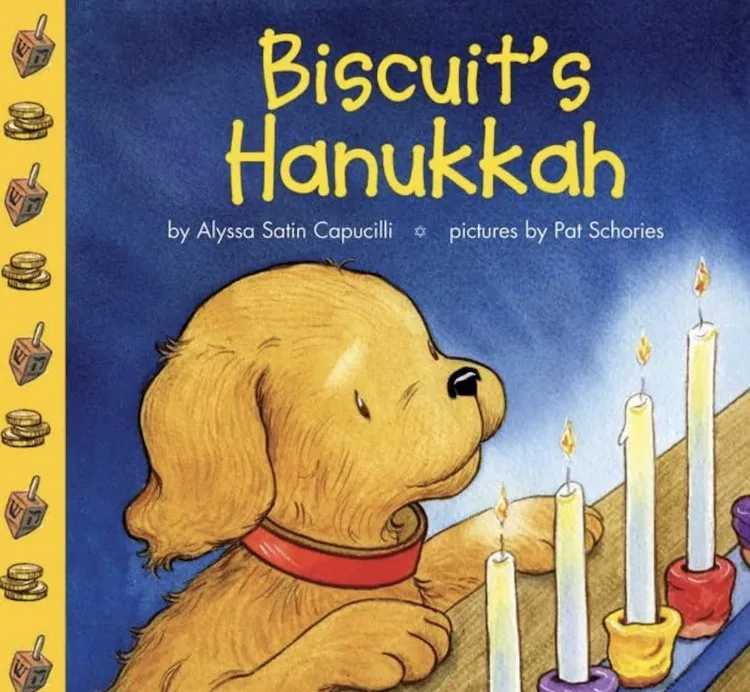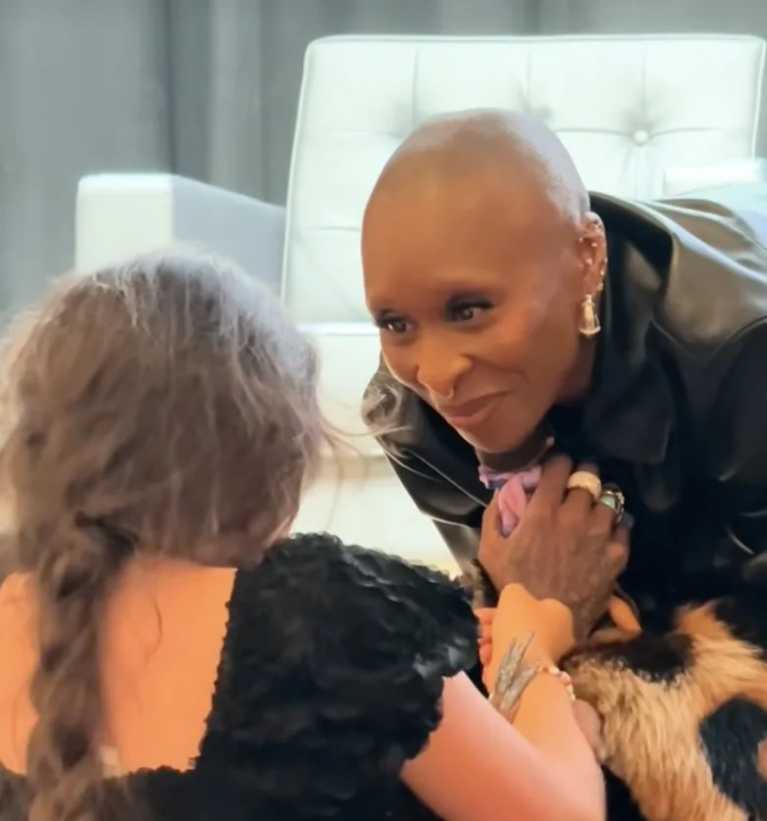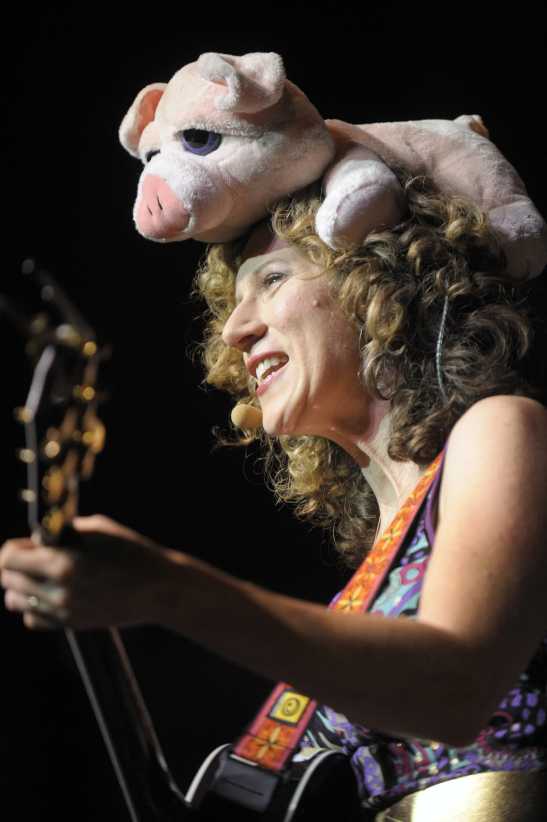Believe in Magic

On September 21, the worlds of humans and fairies collide for the first time in Tinker Bell and the Great Fairy Rescue, Disney’s third film in the Tinker Bell series. Actor Michael Sheen, who voices the father in the film, talks about what his role means to him.
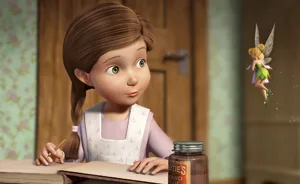
Long before she ever joins Peter Pan and his Lost Boys, Tink befriends a lonely but imaginative girl named Lizzy, who believes in fairies with all her heart despite reprimands by her skeptical father. As her friendship with Lizzy grows stronger, Tink attempts to mend the girl’s relationship with her father by taking a great risk that could put her and all of fairykind in danger. With a lot of luck, and a little pixie dust, Tink and Lizzy team up to save the fairies – and to teach Lizzy’s father how to believe again.
Actor Michael Sheen, the voice of Lizzy’s father in the film and the real-life father to 11-year-old Lily Mo Sheen (with Kate Beckinsale), discusses what his role means to him.
Interview courtesy of Disney
Q: Tell me about your character, Dr. Griffiths.
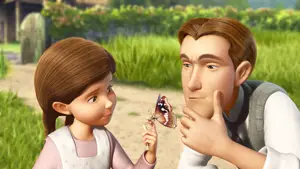 Michael Sheen: He’s a scientist, and he’s very rational…and the idea of believing in something that you can’t see is something that he thinks is quite foolish. And, of course, Lizzy believes in all kinds of things that are magic and that you don’t believe in the same way as adults. So this is quite difficult for the relationship between Lizzy and her father. He doesn’t quite see that actually supporting what she believes in and encouraging her would be a better thing. And so the story of the film for him is to get to the point where he, through all his distractions, eventually realizes the most important thing is to listen to his daughter and to understand what she believes. And he comes to believe himself.
Michael Sheen: He’s a scientist, and he’s very rational…and the idea of believing in something that you can’t see is something that he thinks is quite foolish. And, of course, Lizzy believes in all kinds of things that are magic and that you don’t believe in the same way as adults. So this is quite difficult for the relationship between Lizzy and her father. He doesn’t quite see that actually supporting what she believes in and encouraging her would be a better thing. And so the story of the film for him is to get to the point where he, through all his distractions, eventually realizes the most important thing is to listen to his daughter and to understand what she believes. And he comes to believe himself.
Can you talk about how Tinker Bell gets in the middle of Lizzy and her father?
Well, Tinker Bell in the film is a fixer. She likes to meddle in relationships, but she doesn’t think of it as meddling; she thinks of it as helping people and putting things right. So once she gets to know Lizzy, she sees this relationship [as] something to be fixed. [But] the more that she gets involved, the more the stakes get higher for her, until eventually she does the sort of unthinkable thing, which is to actually show herself to an adult. And so she takes a huge risk on behalf of Lizzy, and through all her fixing and her passion about trying to change this relationship, she gets what she wants.
How much fun is it for you to be in a Tinker Bell movie?
When I was 14 I was in a theatrical production of Peter Pan with my local youth theater and I played one of the Lost Boys, [and] even then it had a huge affect on me. I’ve always felt very close to that story, and I love the original Disney film. I’ve read stories from it to my daughter, and now, to be part of the tradition of flying over London and that kind of stuff, I love all that.
Can you talk about the flying?
For me, the most thrilling moment is flying over London with Lizzy. At one point I say, “There’s something I’ve always wanted to do,” and me and Lizzy go to Big Ben, the big famous clock tower in London, and push the big hand of Big Ben to strike, which is a wonderful moment. I live in London, so I go past Big Ben all the time, and it’s got such a magical, romantic feel about it.
Was Tinker Bell a favorite of yours in “Peter Pan”?
I was never quite sure how I felt about Tinker Bell because on the one hand she is a fairy and she’s very pretty and as a kid you kind of go, “Oh, she’s magical,” but she was also very naughty [and] seemed very mischievous. But I think she’s someone who, especially as a child, you can relate to because she’s not goody-goody and she’s not perfect – she feels things and she feels jealous and she feels hurt and all kinds of things. And she gets angry, and I think as a kid you kind of relate to that.
Do you believe in fairies?
Absolutely, of course I believe in fairies! I believe in all kinds of things. I used to watch my daughter – I’d sort of spy on her through the window where she’d be standing outside singing to the fairies. I think it’s such a shame [that]…people think that you get to a certain age and then you have to stop believing in fairies. It’s all about what you believe, isn’t it? People tend to come into conflict all the time, whether it’s fathers and daughters, or countries, [and] it’s because of a difference in beliefs. The danger is always when you close your mind to the possibility of something different. I suppose in one way that’s what fairies are: Fairies are possibilities.
What would you say is the message of this movie?
Something that I think is very important in the film is the idea of being open to the possibility of something other than what you see. That’s one of the messages, and, as a parent, to be aware that sometimes your focus can be on something that [is] to the detriment of your relationship with your child. Remember that just because children are children doesn’t mean that what they talk about and what they believe in is wrong. Adults don’t always know best at all, and to be open to what a child’s eyes can see in the world can be one of the most important discoveries for a grown up.
| For more information on the Tinker Bell series and a peak into the world of the Disney Fairies, visit www.disney.go.com/fairies/movies/movies.html. |


